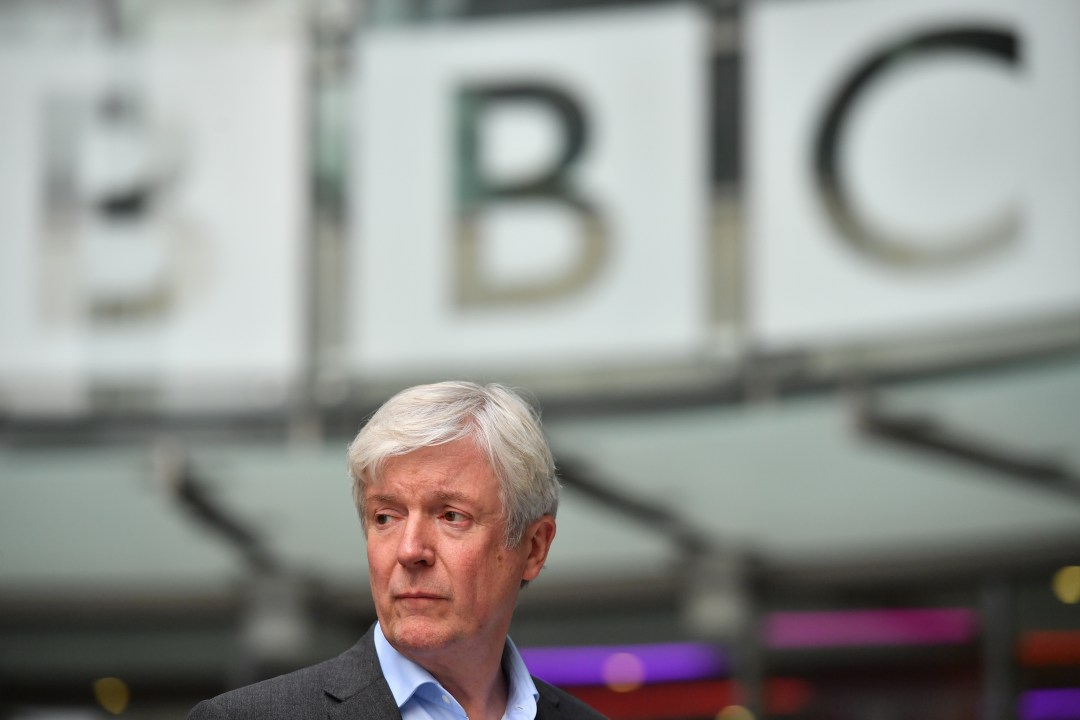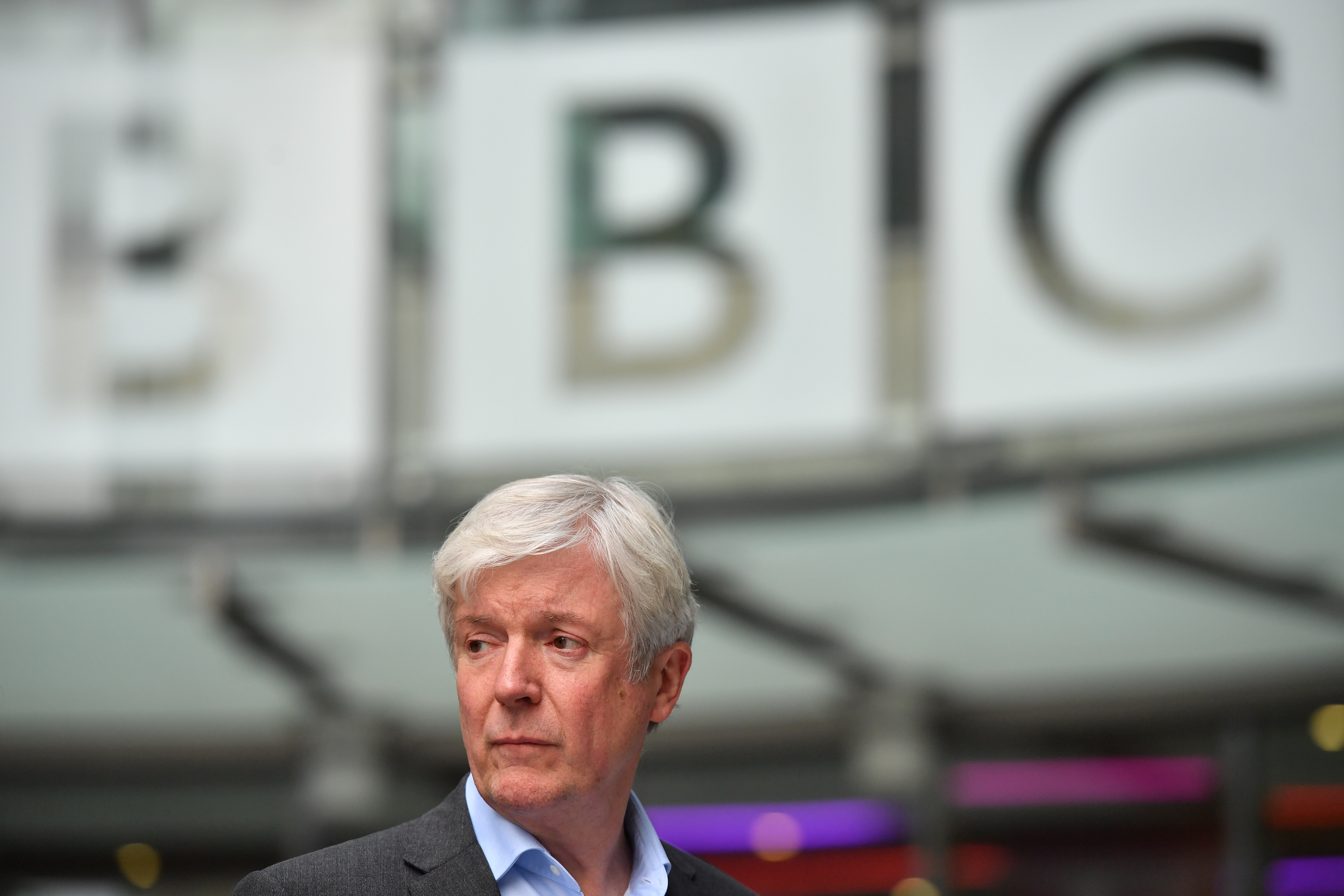‘Diversity’ and ‘inclusion’ have become sacred doctrines within many of our major institutions, a religious fervour that has only increased since the senseless death of George Floyd. All across the globe, panicked corporations, desperate to be on the right side of history, have been rushing to meet demands for ‘systemic and structural change’, whatever that might mean in practice.
Not surprisingly, the BBC has been busily doubling down on its efforts to change perceptions of racism from within its own ranks. This week, director-general Lord Hall announced that the BBC will invest £100 million of its TV budget over a three-year period to produce ‘diverse and inclusive content’. Behind the scenes the corporation has set a mandatory target – 20 per cent of off-screen talent must come from under-represented groups, including ‘those with a disability or from a BAME or disadvantaged socio-economic background’.
In a statement, Lord Hall claims that the Floyd murder has ‘made us question ourselves about what more we can do to help tackle racism – and drive inclusion within our organisation and in society as a whole.’ But why should police brutality in faraway Minneapolis cause Lord Hall to question the cuddly inclusiveness of our national broadcaster, an institution with an almost religious adherence to diversity? Hall’s ambition for the scheme, which will apply from April 2021, is to drive inclusion beyond the confines of New Broadcasting House to ‘society as a whole’, a desire which is surely beyond the remit of the organisation, even one claiming to be the nation’s aunty.
This latest initiative feels more like a knee-jerk atonement
So why 20 per cent? Why not 50 or 10 per cent? And how does tinkering around with percentages remove what Hall describes as the ‘stain of systemic racism’, a term that has yet to be explained in anything other than impenetrable progressive speak? Even if the BBC were to mirror its latest initiative along UK demographics, they would soon disappear down the same old diversity rabbit hole.
Eighty-six per cent of the population is white so will that awkwardly high number be taken into consideration? People from Asian ethnic groups make up the second-largest percentage at 7.5 per cent, followed by Black ethnic groups at 3.3 per cent. Does that mean there should be 4.2 per cent more Asians than black people working within the BBC? But hang on, ‘Asian’ is a pretty broad umbrella. How does Hall intend to fairly distribute Chinese, Indian, Japanese, Pakistani and Bangladeshi employees across all levels of the corporation, if indeed that is his plan? Is he aware that some minorities are less deprived than others and don’t particularly need his generous leg-up? And how will he cater for the 2.2 per cent mixed/multiple ethnic groups and ‘other’ ethnic groups weighing in at 1 per cent?
As it stands, the thinking appears to be that all minorities form part of the same group but this patronisingly reductive way of viewing difference ignores the remarkable complexity of individual lives.
Lord Hall wants to include people from other ‘disadvantaged socio-economic’ backgrounds while being light on details. Will he be including those white working-class young men Trevor Philips describes as today’s ‘educational left-behinds’? What about the elderly; single mothers; deprived Northerners; those struggling in blighted seaside towns? Will any of these disadvantaged people be considered for plum roles at the BBC’s prestigious central London offices or even for more menial employment within the organisation?
It’s not as if BAME people are being denied jobs at the BBC. The real issue here isn’t numbers, it’s the distribution of labour – the higher up the ladder you go at the BBC, the whiter it becomes. So how do you fix that tricky conundrum? Well, it’s easy to blame ‘institutional’ and ‘structural’ racism when you hit a complex set of circumstances. Few will dare question such vague assertions, especially when they risk accusations of bigotry. These terms certainly sound menacing enough but does trying to tackle them really get to grips with the issue in hand, namely that of individual choice and the role upbringing and circumstance have on a person’s life chances? Over time, benign sounding diversity initiatives can be quietly swept aside while genuine inequality continues unabated.
When it comes to the BBC, is Lord Hall seriously asking us to believe that there is a cabal of racists working undercover at one of the most liberal institutions on earth? You only have to look at the schedules and the acres of content devoted to perceived racial inequality in our society to see that the BBC is already doing everything in its power to stamp out whatever vestiges of racism still exist. Do they really need to spend a further £100 million of licence fee money on tick-box initiatives that add nothing to the quality of their output?
A spokesperson for the corporation admitted to me that they were already hitting on-screen targets so why not spend the money on hiring the best people for the job and leave it at that?
This latest push follows hot on the heels of last year’s pledge to ensure 50 per cent of on-air roles go to women by the end of 2020, with targets of 15 per cent for black, Asian and minority ethnic groups, 8 per cent for disabled people and 8 per cent for LGBT staff. But how do these on-screen percentages tally up with the seemingly arbitrary 20 per cent figure for off-screen staff? No one seems to know.
Hall’s announcement this week includes three ‘tests’ for diversity in the BBC’s TV output, with programmes needing to meet two of them to qualify. These comprise ‘diverse stories and portrayal on-screen’, ‘diverse production teams and talent’ and ‘diverse-led production companies’. I have spoken to independent producers about what this means for programme-making and they seem genuinely baffled.
In essence, then, this latest initiative feels more like a knee-jerk atonement rather than a genuine desire to make the corporation accountable to the broadest possible demographic. By focusing on racial diversity, the BBC is once again forgetting about its lack of diversity around opinions and ideas – an issue viewers are finding increasingly concerning.
James Innes-Smith is the author of The Seven Ages of Man – How to Live a Meaningful Life published by Little, Brown later this year.







Comments